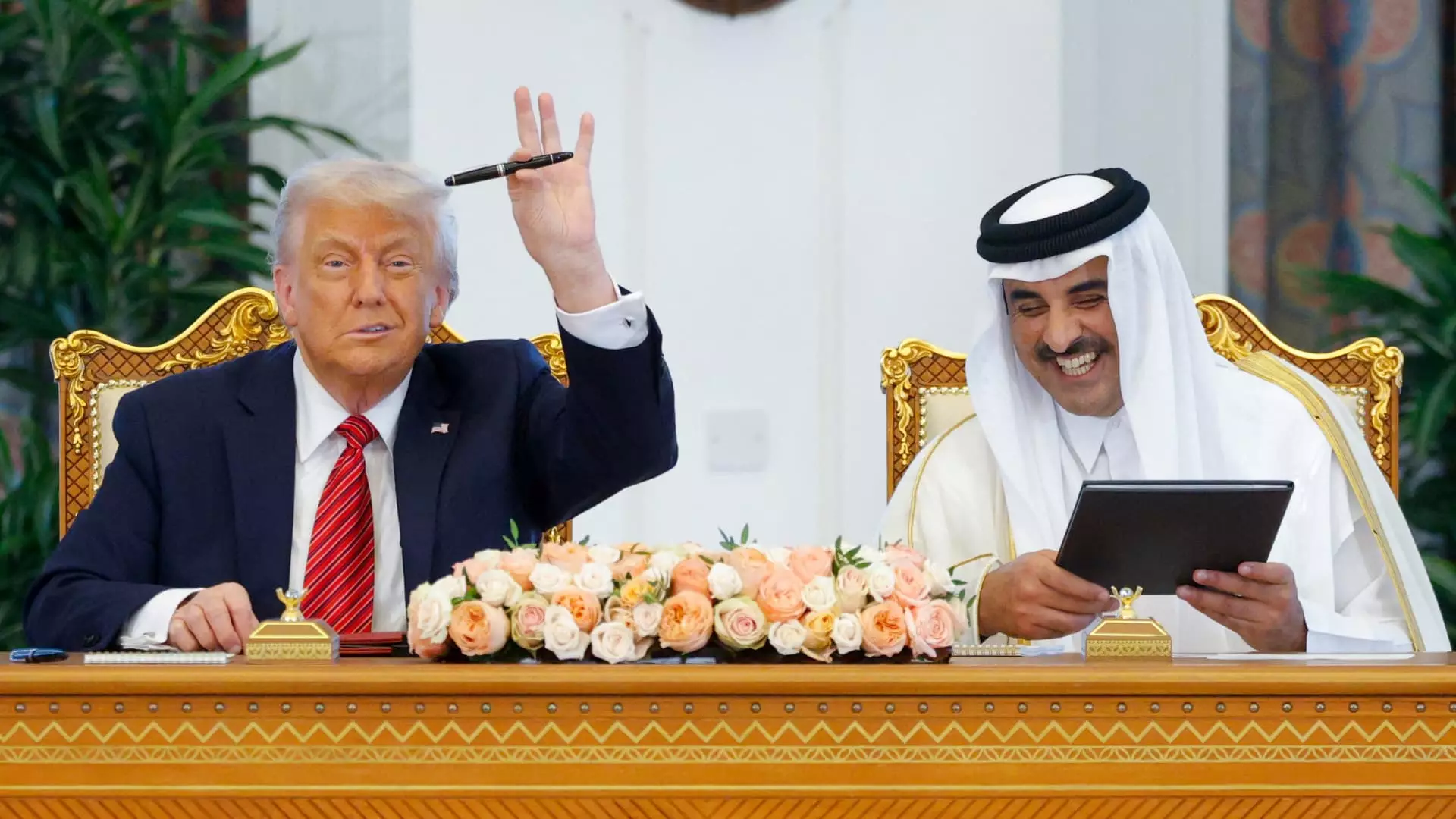Recent developments surrounding Qatar’s proposal of a $400 million Boeing 747 for U.S. President Donald Trump have ignited a firestorm of ethical scrutiny and political debate. Sheikh Mohammed bin Abdulrahman al-Thani, Qatar’s Prime Minister, dismissed accusations that the grand jet gift was a ploy to gain favor with the Trump administration. He insists that this “gesture” is merely a token of longstanding bilateral relations, characterizing it as a transparent and entirely legal transaction that benefits both nations. However, this claim raises alarm bells about the ethical boundaries of diplomacy and the potential for corruption.
Al-Thani’s assertion that gifting extravagant airplanes is part of normal diplomatic relations stretches the limits of rational justification. While it is not uncommon for nations to engage in gift-giving as part of their relations, the sheer scale and value of such a donation, particularly from a nation with a complicated geopolitical standing like Qatar, introduces a new level of scrutiny. Critics rightly question whether this is a benevolent gesture or a calculated attempt to buy influence in a tumultuous political landscape. The line between normal diplomatic niceties and borderline corruption is perilously thin, and Qatar’s actions might very well have crossed that line.
The Political Fallout: A Tumultuous Landscape
In the wake of Trump’s overseas visit, several Democratic lawmakers have voiced their outrage. The Foreign Emoluments Clause, designed to protect American interests from foreign corruption, is at the heart of the debate. The Constitution explicitly prohibits officials from accepting gifts that might compromise their judgment or duties. Yet, the line between diplomacy and corruption often blurs, especially under the current administration, which has already faced numerous accusations of ethical breaches.
Democrats have mobilized quickly, emphasizing that this incident symbolizes a more profound issue of corrupt practices at the highest levels of government. Representative Jamie Raskin succinctly captured this sentiment, arguing that Congress must hold the President accountable and prevent the office from becoming a “get-rich-quick scheme.” The accusation cuts to the core of the trust Americans place in their leaders, which is further threatened not just by this potential transaction but by a broader culture that seems increasingly tolerant of ethical transgressions.
Moreover, Senator Chris Murphy aptly described this situation as “the definition of corruption.” When viewed through this lens, the Qatari offer, which has been framed as a diplomatic gift, transforms into a potential scandal that could undermine the integrity of the executive office. Although al-Thani posits that similar gifts have been given historically, the context surrounding Trump’s presidency—marked by divisive politics and contentious global relationships—brings the implications of such gestures into sharper focus.
The Reality of Political Influence
This incident also raises difficult questions about the nature of political influence and how it is exchanged at the international level. Qatar’s generous proposal, if accepted, risks establishing a dangerous precedent, reinforcing a culture where nations seek favor through lavish gifts rather than meaningful diplomatic engagement. The potential fallout is staggering: not only could such actions alter the public’s perception of politicians and their motivations, but they may ultimately create an environment where foreign powers manipulate political outcomes in favor of their interests.
In the realm of modern politics, where transparency is increasingly demanded, Qatar’s ostentatious offer threatens to cast shadows on legitimate diplomacy. The juxtaposition of a lavish gift against pressing issues like humanitarian crises, economic inequality, and global unrest becomes starkly apparent. Can we allow ourselves to engage with foreign states that operate on principles that contradict our values simply because they can provide material wealth?
The Qatari jet proposal stands as a microcosm of the potential moral decay that accompanies unchecked political power and influence. As politicians continue to grapple with the implications of such extravagant offers, it’s crucial to take a hard stance on maintaining ethical standards in diplomacy, safeguarding our democratic ideals against the tide of corruption that continues to swell.



Leave a Reply